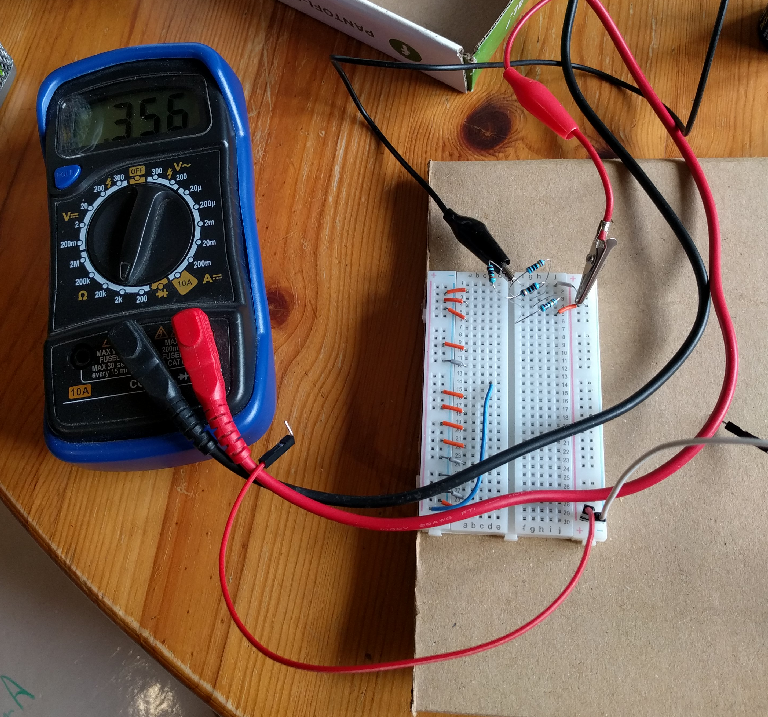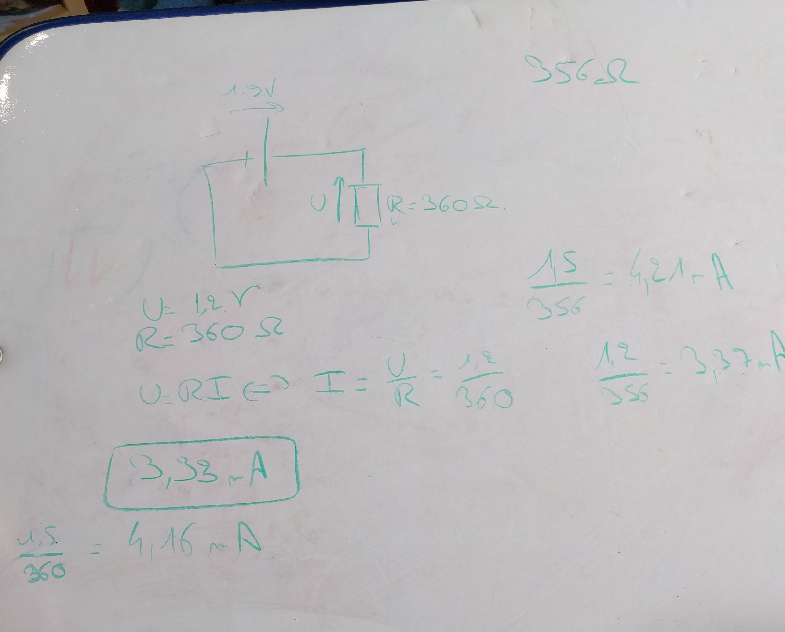Test Battery With a Multimeter
Fleeting- External reference: https://www.instructables.com/Add-Battery-Test-to-a-Multimeter/
Add Battery Test to a Multimeter
Batteries should normally be tested under a load because a no load voltage test could read normal, but drop considerably when the battery is under load.
— https://www.instructables.com/Add-Battery-Test-to-a-Multimeter/
adds 360 ohms of resistance as a load
— https://www.instructables.com/Add-Battery-Test-to-a-Multimeter/
1.5 volt battery in good condition should show a current draw of 4 milliamps or more and a good 9 volt battery should show a current draw of 25 milliamps or more. There is nothing mysterious about this. It is a simple application of Ohm’s Law, which says that voltage (E) in a direct current circuit is equal to resistance (R) multiplied by current (I), or E = IR. Factored, that is current (I) equals voltage (E) divided by resistance (R).
— https://www.instructables.com/Add-Battery-Test-to-a-Multimeter/
So, with a 356 ohm resistor

